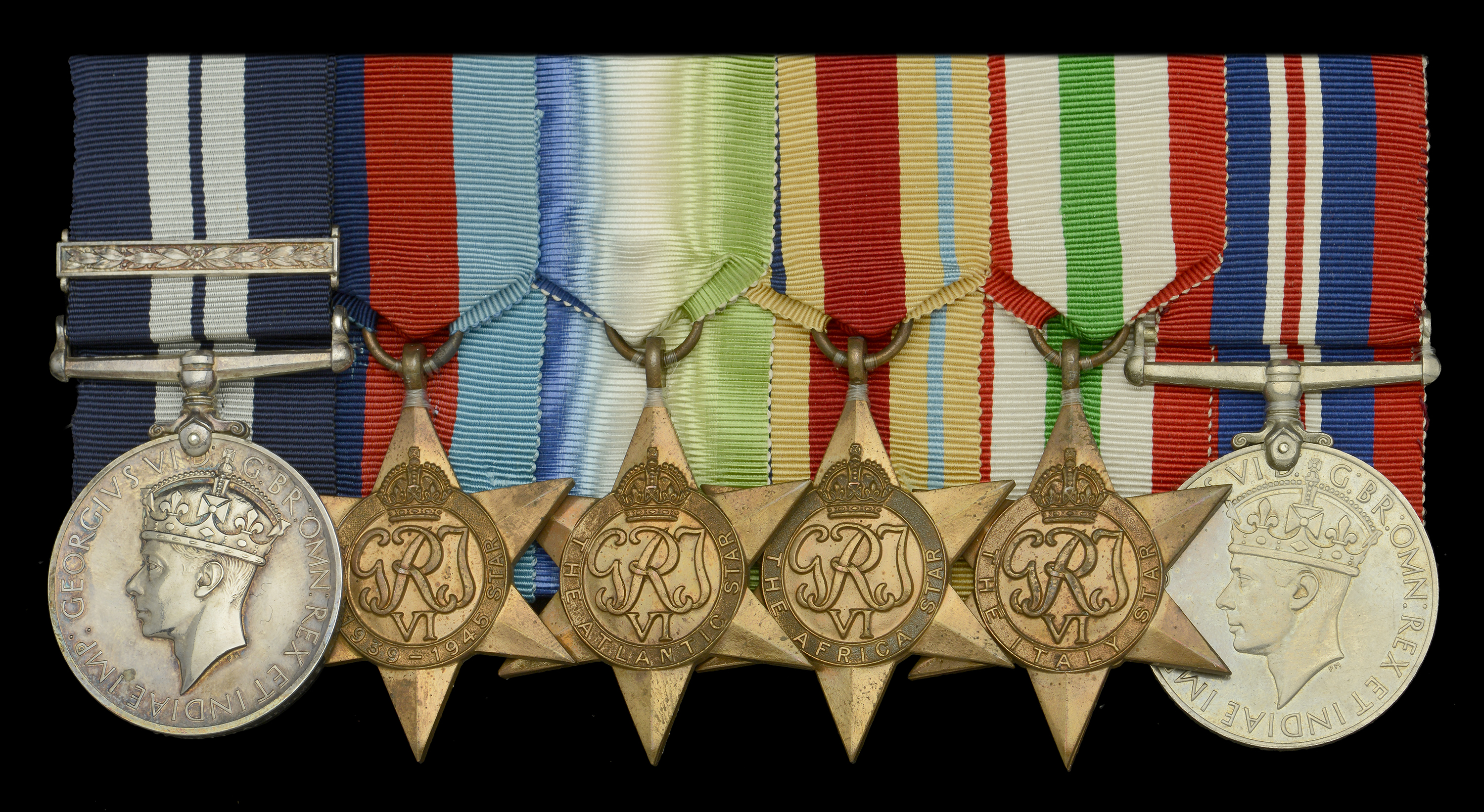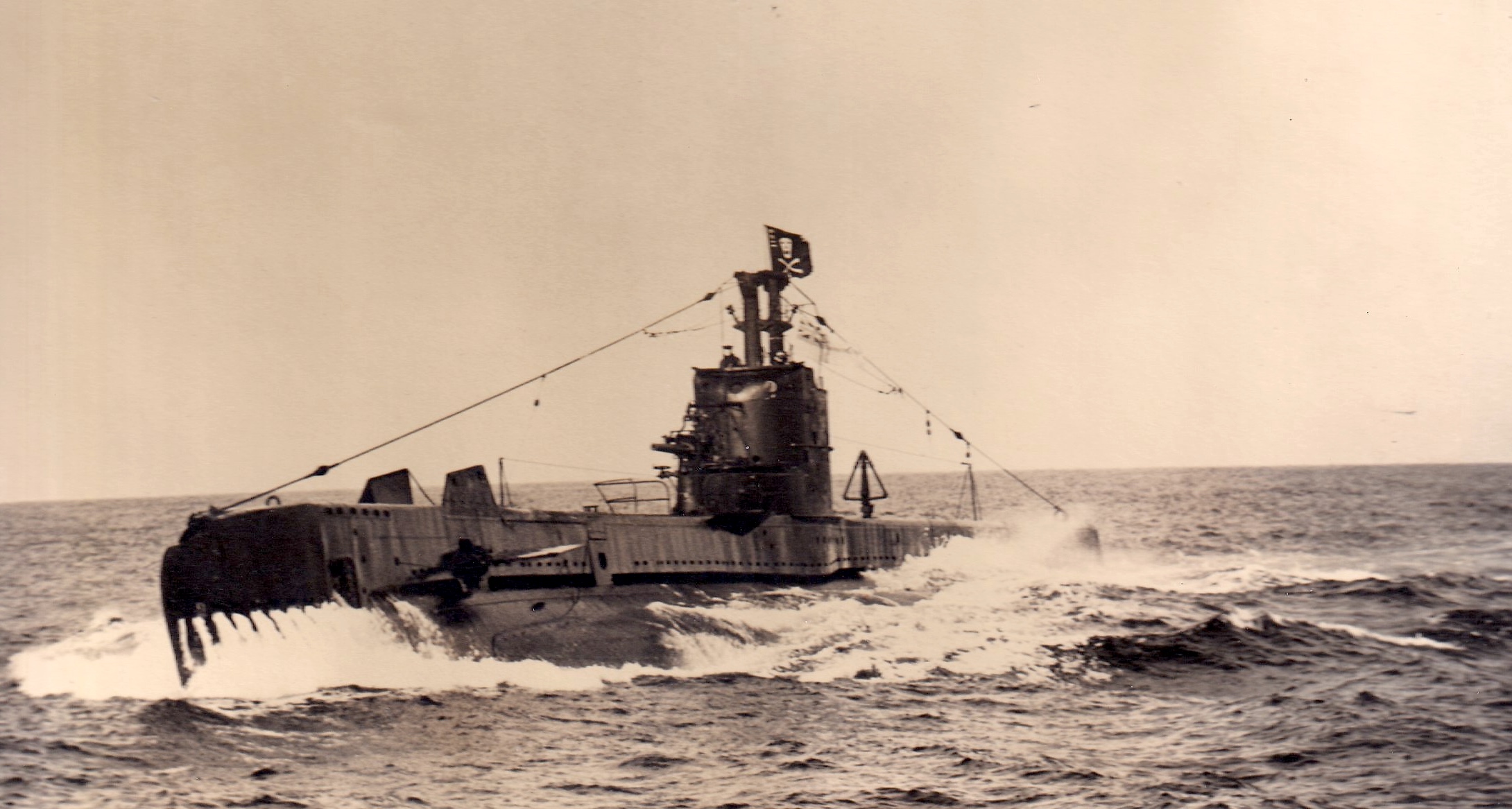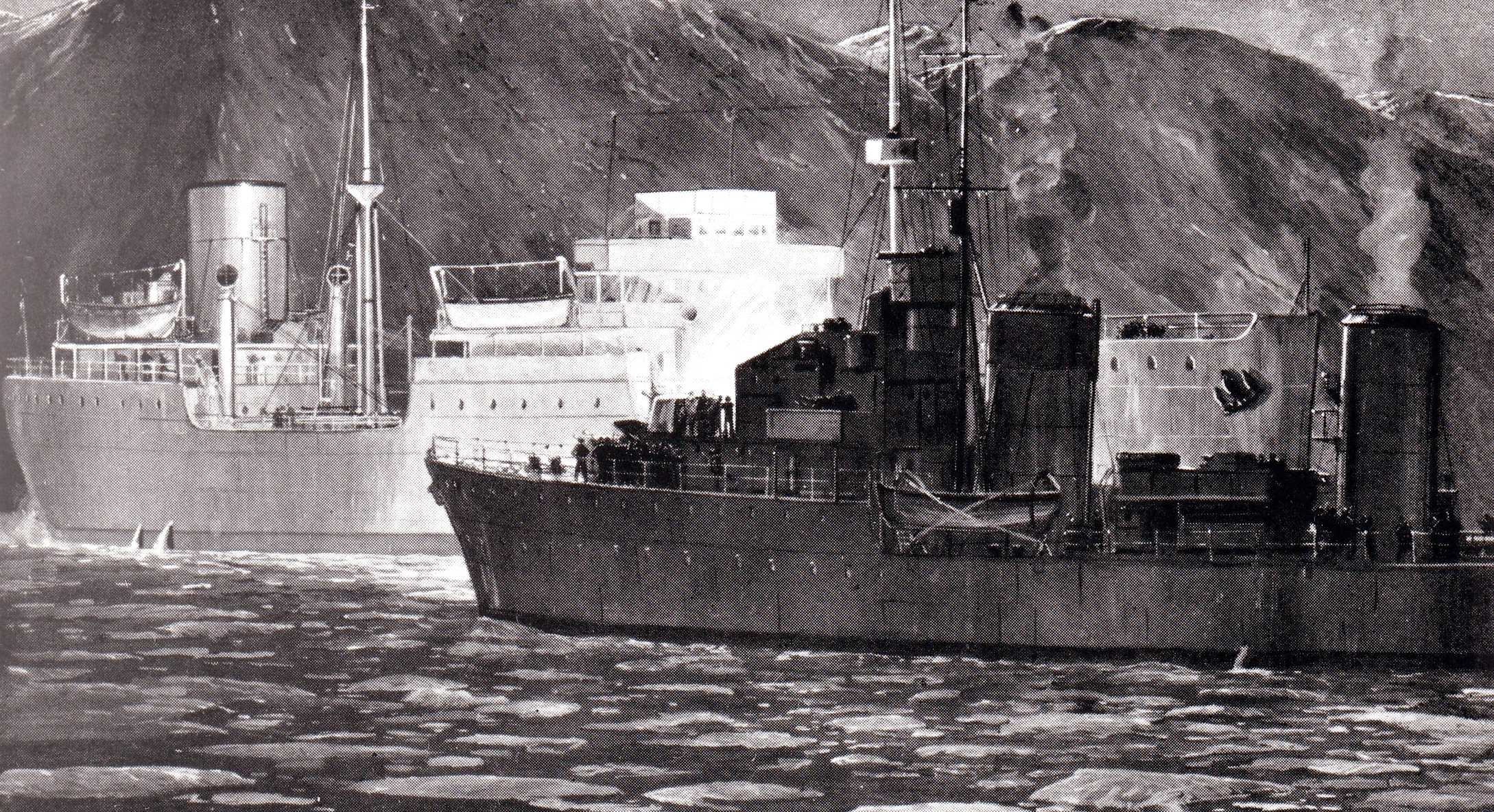The Second War D.S.M. and Bar group of six awarded to Able Seaman S. D. Bennett, Royal Navy, who, having been originally decorated for his part in the famous boarding of the Altmark off Norway in February 1940, went on to win a Bar to his D.S.M. for services in H.M. Submarine Saracen in the Mediterranean: taken P.O.W. following her loss off Bastia in July 1943, he made at least two bids for freedom, one of them leading to him enjoying a period of several months at large, when he worked with the Italian partisans Distinguished Service Medal, G.VI.R., with Second Award Bar (JX. 136296 S. D. Bennett, A.B, H.M.S. Aurora.); 1939-45 Star; Atlantic Star; Africa Star; Italy Star; War Medal 1939-45, mounted as worn, extremely fine (6) £5,000-£7,000 --- Importation Duty This lot is subject to importation duty of 5% on the hammer price unless exported outside the UK --- --- Provenance: Sotheby’s, May 1989; Ron Penhall Collection, Dix Noonan Webb, September 2006. Eight D.S.Ms were awarded for the ‘Altmark Incident’, which with the addition of a Bar for services in submarines probably makes Bennett’s award unique; approximately 150 Bars to the D.S.M. were issued in the 1939-45 War. D.S.M. London Gazette 12 April 1940: ‘For gallantry and devotion to duty in the boarding of the Altmark.’ D.S.M. Second Award Bar London Gazette 20 July 1943. The original recommendation states: ‘During her one patrol at home, and eight in the Mediterranean, Saracen has sunk by torpedo two enemy supply ships and one transport, totalling 20,000 tons, two U-Boats and one destroyer; and by gunfire two large tugs and one anti-submarine schooner, and bombarded one shipyard; and damaged one large tanker by torpedo and carried out one successful special operation. Except in the case of the U-Boat, the attacks have been carried out against escorted ships and the Saracen has been depth-charged in consequence. Able Seaman Bennett is recommended for outstanding skill and devotion to duty as gunlayer during the above successful patrols in Saracen.’ Stanley Douglas Bennett was born in November 1915 and entered the Royal Navy in October 1931. Appointed an Able Seaman in 1934, he commenced his wartime career aboard the cruiser H.M.S. Aurora and, in common with a few other crew members, was transferred to the destroyer Cossack off Norway in early 1940. The Altmark Incident On the night of 16 February 1940, in an episode that would be widely reported in the home press, Captain Philip Vian, R.N., C.O. of the Cossack, commanded a brilliant enterprise in neutral waters in Josing Fjord, Norway, when 300 British merchant seamen were rescued from appalling conditions in the holds of the German auxiliary ship Altmark, all of them victims of earlier sinkings in the South Atlantic by the Graf Spee prior to her demise in the River Plate; their rescue was effected by a boarding party from Cossack, armed with revolvers, rifles and bayonets, one of whom was Able Seaman Stanley Douglas Bennett. As a result of the unfortunate delays caused by the implications of the Altmark being in neutral waters, and the presence of two Norwegian torpedo-boats ordered to prevent British intervention, Vian had patiently awaited Admiralty orders before embarking on his desperate mission, but when they arrived, with all the hallmarks of the First Sea Lord, Winston Churchill’s hand upon it, he moved swiftly. Vian’s account takes up the story: ‘Having placed Cossack in a position from which our pom-poms could play upon Norwegian decks, whilst their torpedo tubes were no instant menace to us, I said we could parley no longer, and must board and search the Altmark forthwith, whether we fought them or not. Kjell’s captain decided that honour was served by submitting to superior force, and withdrew. On rounding the bend in the fjord, Altmark at last came into view. She lay bows inshore, encased in ice, her great bulk standing black against the snow-clad mountains. Thoughts of the six-inch guns with which the Altmark was said to be armed were naturally in our minds. Though our own guns were manned we were obviously an easy target, and the enemy’s first shots might well immobilise us at once. There was nothing for it, however, but to go ahead and get to grips as quickly as possible. The Altmark’s Captain was determined to resist being boarded. On sighting Cossack, he trained his searchlight on our bridge to blind the command, and came astern at full power through the channel which his entry into the ice had made. His idea was to ram us. Unless something was done very quickly the great mass of the tanker’s counter was going to crash heavily into Cossack’s port bow. There followed a period of manoeuvring in which disaster, as serious collision must have entailed, was avoided by the skill of my imperturbable navigator, McLean, and by the speed with which the main engine manoeuvring valves were operated by their artificers. Lieutenant Bradwell Turner, the leader of the boarding party, anticipated Cossack’s arrival alongside Altmark with a leap which became famous. Petty Officer Atkins, who followed him, fell short, and hung by his hands until Turner heaved him on deck. The two quickly made fast a hemp hawser from Cossack’s fo’c’s’le, and the rest of the party scrambled across. When Turner arrived on Altmark’s bridge he found the engine telegraphs set to full speed in an endeavour to force Cossack ashore. On Turner’s appearance, the captain and others surrendered, except the third officer, who interfered with the telegraphs, which Turner had set to stop. Turner forbore to shoot him. It was now clear that as a result of her manoeuvres Altmark would ground by the stern, which she did, but not before Cossack, the boarding party all being transferred, had cast off, to avoid the same fate. It was expected, with the surrender of the German captain, that the release of our prisoners would be a drawing-room affair. That this was not so was due to the action of a member of the armed guard which Graf Spee had put aboard. He gratuitously shot Gunner Smith, of the boarding party, in an alleyway. This invoked retaliation, upon which the armed guard decamped; they fled across the ice, and began to snipe the boarding party from an eminence on shore. Silhouetted against the snow they made easy targets, and their fire was quickly silenced by Turner and his men. In the end German casualties were few, six killed and six badly wounded. The boarding party had none, save unlucky Gunner Smith, and even he was not fatally wounded. Resistance overcome, Turner was able to turn to the business of the day. The prisoners were under locked hatches in the holds; when these had been broken open Turner hailed the men below with the words: “Any British down there?” He was greeted with a tremendous yell of “Yes! We’re all British!” “Come on up then,” said Turner, “The Navy’s here!” I received many letters from the public after this affair: a number wrote to say that, as I had failed to shoot, or hang, the captain of Altmark, I ought to be shot myself.’ In point of fact Vian and his men were hailed as heroes the land over, Winston Churchill setting the pace with mention of their exploits in an address to veterans of the Battle of the River Plate at the Guildhall just four days after the Altmark had been boarded: “To the glorious action of the Plate there has recently been added an epilogue - the rescue last week by the Cossack and her flotilla - under the noses of the enemy, and amid the tangles of o...












